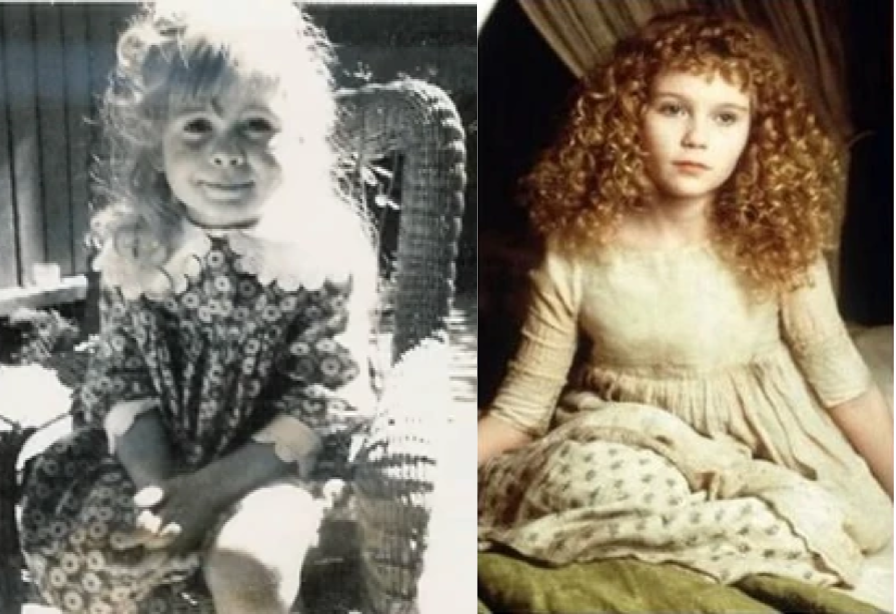The Truth is Overrated
In Chuck’s workshop, bringing in memoir is frowned upon. The true-to-life stories of your peers gets hard to edit, because you can’t change the plot of the story. Also, it gets tricky when someone brings in really difficult material, possibly something traumatic that they’ve been rehashing and trying to get right their whole lives, and the room is stuck sharing space with the worst thing that’s ever happened to someone: the death of a family member, a rape, a horrific, disfiguring moment that changes your peer and possibly friend forever; what are you going to do, criticize your friend for letting their baby die? Tell them the way their dog died was wrong, and to do it another way to maximize the impact?
The other issue with memoir, or personal essay, is that there’s only one way in: the pain and the experience of the writer. Instead, Chuck, per Tom Spanbauer, urges us to find the higher metaphor, and exhaust that subject over the course of a novel.
In an alternate universe, Anne Rice could have written a memoir about her heartbreak following the death of her daughter. Story goes, her daughter got leukemia when she was about five years old. Anne Rice’s life filled with blood. Anne Rice took a break from college to raise a little blonde girl, and instead she ended up driving her back forth across hospitals, consulting blood charts.
Her daughter’s name was Michelle. She died just a little before she would have turned six years old.
And that’s why we live in the universe where Anne Rice wrote Interview with a Vampire.
It’s because of that, that in Interview with a Vampire, we get a perfect, ageless, blonde girl. Claudia couldn’t have been anything else.
Claudia dies because Michelle dies.
In another alternate universe, Max Brooks could have written a memoir about caring for his mother, Anne Bancroft. Mrs. Robinson from The Graduate.
Like Simon and Garfunkle’s “Here’s to you, Mrs. Robinson.”
Anne Bancroft, wife to Mel Brooks, who dreaded going out to eat in public because, well, they were Anne Bancroft and Mel Brooks. Always, people would swarm them, and dinner would turn into the Mel Brooks show.
Story goes, when Anne Bancroft got cancer, every oncologist looking to make a name for himself was ready to save her. The credit, the prestige, of getting to say, “I’m the doctor who saved Anne Bancroft!”
When a doctor failed to treat the cancer, a new one would appear and make the same promise, over and over.
We live in the universe where Max Brooks wrote World War Z. And each time someone found a cure, it failed. And then someone else found a cure for zombies, and they failed too.
The zombies win because cancer wins.1
In another workshop, someone had brought in a piece of memoir. A short story about them trying to reconcile with their ex, who had this super tricked out Jeep. All the bells and whistles, always clean, heated seats, everything. Them reconciling didn’t pan out so hot. I suggested, “The Jeep needs to be destroyed by the end of the story. It would be a good gesture to land on, and would signal the destruction of the relationship as well.”
The student said, “But I didn’t destroy the Jeep.”
“Have you thought about changing the plot of your life?” I asked.
Now, the Moonlight…
To read the story as it was originally published, click here.
Back in 1969, Sherman Kelly, his girlfriend, and some of his friends were partying on the Caribbean. They took a dingy to St. Croix, and the dingy was so rocky that Sherman Kelly and his girlfriend got incredibly seasick. Too seasick to go out and drink and eat with their friends.
When it was time to go back to the other island, Sherman and his girl looked out at that boat, and it swayed side to side. Too green to get back on the dingy, Sherman and his decided to recover until the next day.
After the dingy left, Sherman discovered that he didn’t have his wallet. He left it on the dingy.
He and his girlfriend went to a hotel and they asked if they could stay over night. When the hotel asked for payment, Sherman told the clerk he left his wallet on the dingy. But he was good for it and his friends will be back tomorrow to get him and they’ll bring his wallet.
“Sure, we’ll let you stay,” the hotel manager said, “if you let me fuck your girlfriend.”
Sherman and his girlfriend left and moved on to the next hotel.
They asked if they could stay, and Sherman told the hotel that he left his wallet on the dingy, but he’s good for it and his friends will be bringing his wallet back tomorrow, and then he’ll pay. But they got turned down again.
Sherman’s girlfriend said it was a beautiful night, why don’t they just sleep out on the beach?
So they did.
That night, five guys with baseball bats found the young couple sleeping on the beach. This gang, in its infancy, started beating on Sherman Kelly, and the gang leader started raping his girlfriend. There were five of them, and as soon as the gang leader was done, each of his cronies were in line their turn.
Sherman Kelly woke up and started fighting. He made just enough noise and trouble that their assailants decided the couple wasn’t worth the trouble anymore, and they left.
Fading in and out of consciousness, Sherman Kelly and his girlfriend walked to the nearest hospital. The staff grabbed them and put them on stretchers and put them in emergency rooms.
Sherman Kelly heard hospital staff say, “He’s dead. He’s just passed.”
They were talking about the guy next to him in his room, but at that moment, Sherman thought they were talking about Sherman.
Coming out of that experience, Sherman couldn’t go back to playing music. But he could still write. Sherman asked, what if that night was completely different? What if instead of that being the worst night of his life, Sherman made it new and beautiful and something you can dance to?
That’s why we live in a world with Dancing in the Moonlight. Instead of committing that night to memoir, Sherman Kelly made something that everybody loves instead, and has endured so strongly in the culture, it’s been covered over and over, and always gets everyone out on the dancefloor.
It’s been stuck in my head for weeks now.
In Conclusion
So many people get trapped by their own story. Whatever the worst thing that has happened to them becomes the only the only thing that’s happened to them, and they commit to rendering it exactly as it occurred. Some artists spend their entire career so mired in their own trauma, they never go on to work on anything new, and what they do finish never finds a wider audience.2
You may say, “But Colton, this is my heartbreak. This is my soul. Isn’t that important?”
I know. I know. I’ve spent years trying to get my own shit exactly right. I thought that if I could render some of the sad experiences that made me who I am, then maybe I’d be seen and understood a little bit better, and that other people who experienced similar hardships would be felt understood too.
But this isn’t the kind of work most people go seeking. And worse, for the person making it, it’s still a trap. So if you ever feel trapped by a thing, ask yourself, what if it was different? Go ahead and make anything except what’s hurting you. Try to make something beautiful we can dance to.
For some people, a little blonde girl is just a little blonde girl. For others, a zombie is just a zombie. Maybe someone will see these things as what they are. Most won’t, but they’ll still enjoy the story, and like good travelers, always bring their own baggage anyway.
In the meantime, I plan on going dancing in the moonlight.
Until next time,
Colton Merris
I think Chuck sleuthed this out when speaking with Max Brooks himself, credit where credit is due.
New fear unlocked: I write a book and Chuck figures out what the fuck was wrong with me at that moment, and then he goes on tour and tells the story to an entire theater full of people.
“It was the summer of my seventeenth rape,” Chuck cites from someone from one of his early workshops.








Goddammit, now that song’s stuck in my head. Beautiful point, though, and pretty awesome because I was just typing out an “essay” about how what we do isn’t a trap or a curse, but something to indulge in, to allow yourself to be intoxicated by. Thank you.
"'Have you thought about changing the plot of your life?' I asked." Genius.